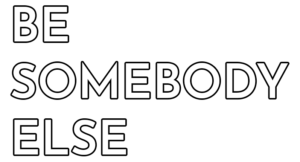Sayaka Murata: a review as a letter to somebody
Dear whoever,
I find myself reading less fiction as time passes. At the same time I spend more time writing clinical material. However, every so often I buy a novel, as I did with Sayaka Murata’s Vanishing World. It’s truly shocking, in the most extraordinary kind of a way. I’ve seen it reviewed as a comedy, which I suppose someone might read it as … depending on how little feeling they have left for life. I found it unfunny in the extreme. Unfunny in the sense you might find a clinical paper amusing at times but overall particularly serious – particularly in the way Lyotard might have meant. Clinical writing takes its authority from different places than the author’s sensibility.
Which is not to say Murata’s sensibility should be ignored. Vanishing World is a novel. However it’s also a novel in translation, leaving every reader is in the hands of Murata’s translator, Ginny Tapley Takemori. These feel safe hands.
It’s a novel about the inconvenience of instinct in societies hung up on productivity and reproductivity. That is, not just making something happen but making more of the same happen better. Instincts get in the way of that. Thoughts emerge after feeling, not before, although I am coming to believe it’s a mistake to try and narrativise that sequence.
I don’t like the move towards the ending, or the ending. Ever since I found myself chucking a novel by Jonathan Coe out of a window because the ending was exactly as I had anticipated it after having read half the book my patience for predictability has grown slight. Narratives need not be predictable, as I was reminded watching Bi Gan’s Long Day’s Journey into Night last night, even if they might be imaginable. Imaginable can be unpredictable.
There’s too much in Vanishing World which is true for me to read it as fiction. If I read it clinically I see a frightening examination of the conflicts which arise in those who find it in them not to believe the stories fed to them about how to behave. Or an account of what it’s like to be a person who can’t help seeing the ways people do things which demand the doer to forget who they might actually, really need to be. I read Murata’s Convenience Store Woman and found it being reviewed as a study of an autistic narrator. Or maybe a novel by an autistic writer. If autism means to know how to hold onto oneself, which I suspect it does, even if there is no choice in the matter, maybe.
Vanishing World is a world where fiction becomes less possible. The sameness of living where living means to find a machine for living (rather than Le Corbusier’s machine, a house, for living in) will be impossible to fictionalise. There will be no other life left to imagine.
Yours as ever,
T


